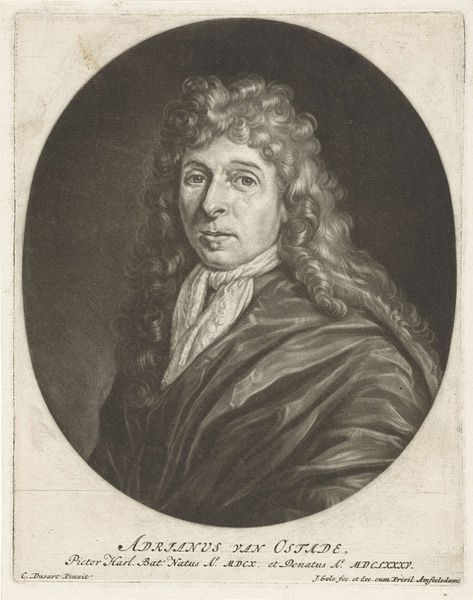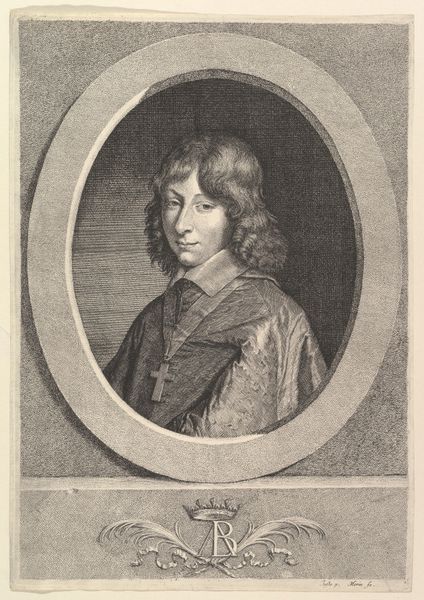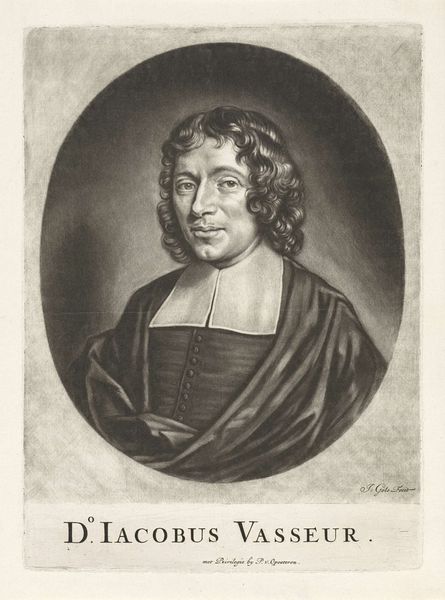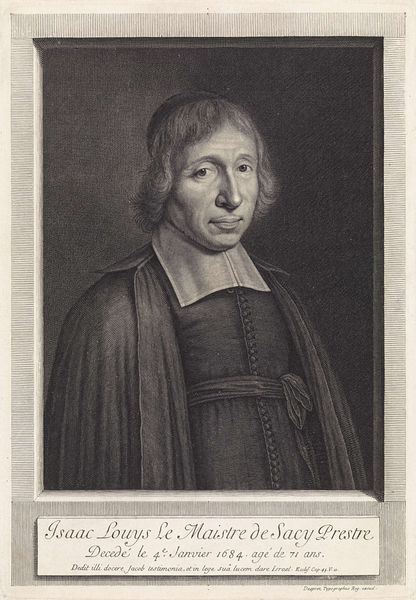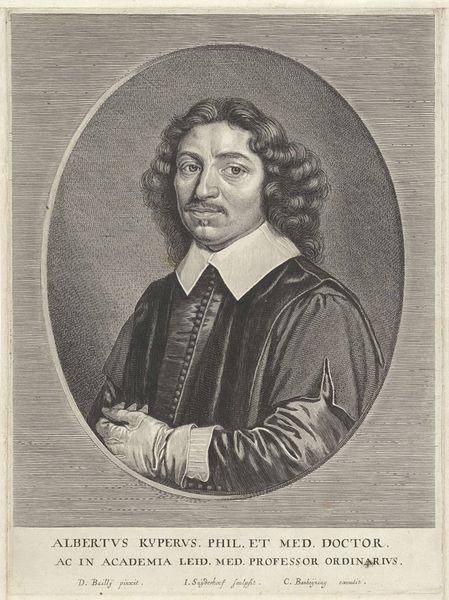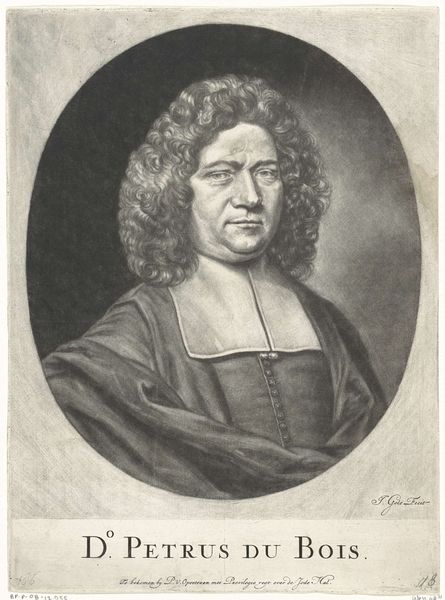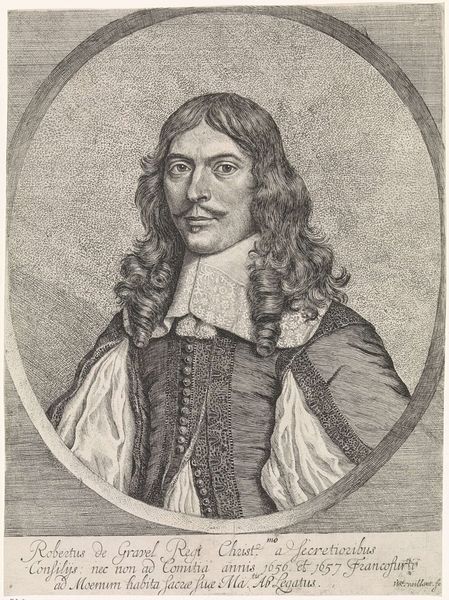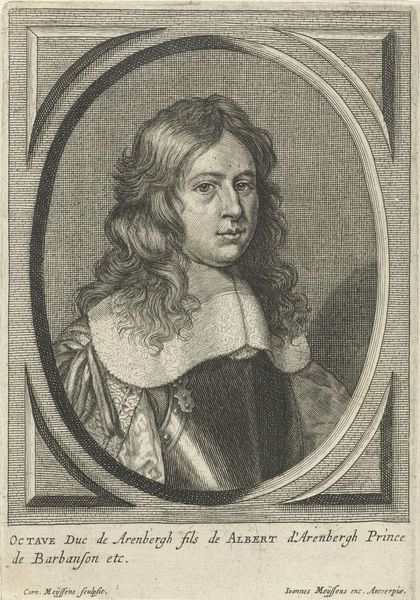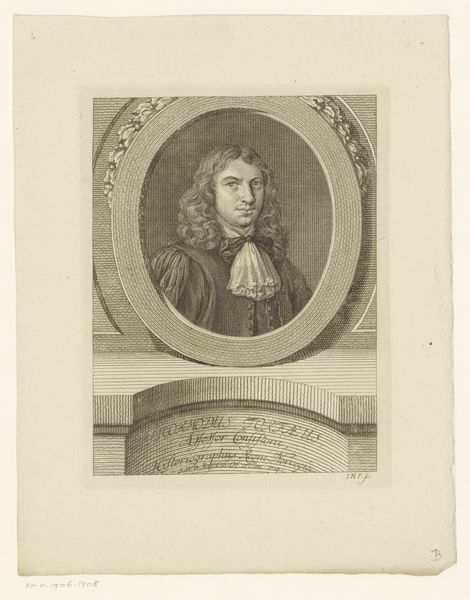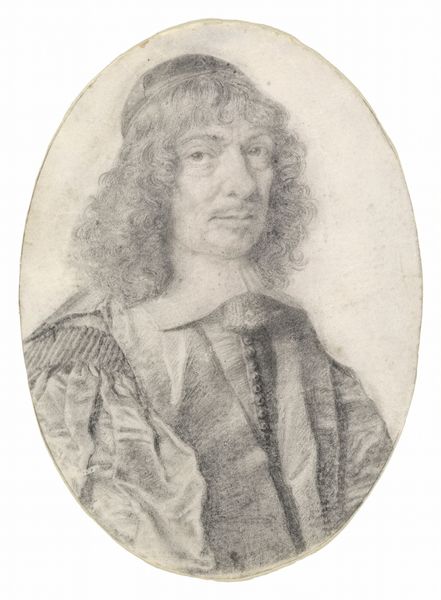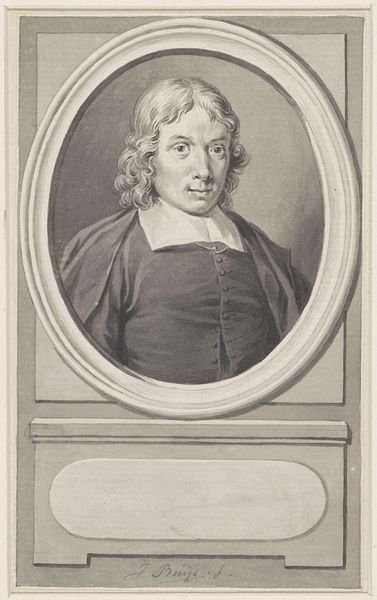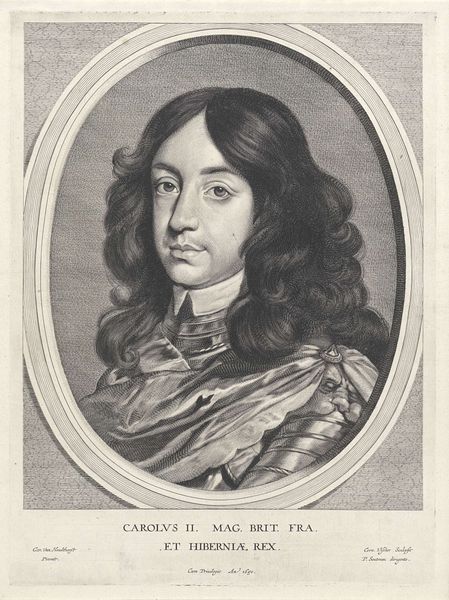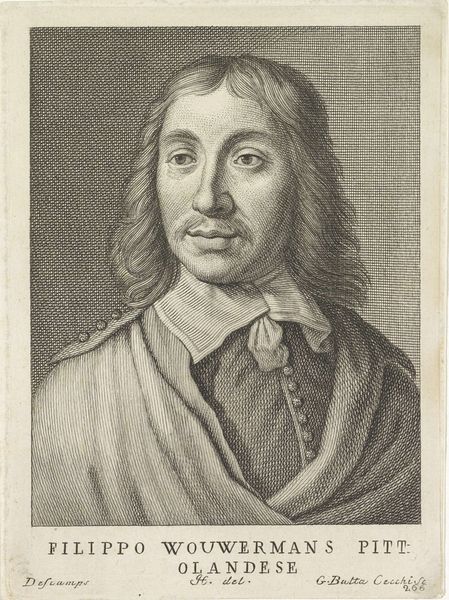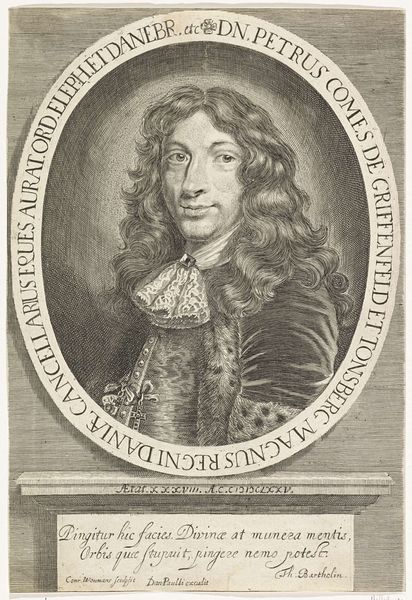
engraving
#
portrait
#
dutch-golden-age
#
engraving
Dimensions: height 152 mm, width 114 mm
Copyright: Rijks Museum: Open Domain
Hendrik Bary made this self-portrait in 1659, using a copper plate and engraving tools. This wasn't drawing or painting, but a printmaking process demanding meticulous skill. Look closely and you'll see how the dense network of fine lines creates areas of tone and shadow. The controlled gradations give depth to his face, and texture to his hair and clothing. The inscription below translates roughly as "to engrave well in copper brings great honor," which speaks to the status of printmaking in the 17th century. Unlike painting, prints could be reproduced, allowing for wider circulation of images. This was crucial in an era before photography, serving as a primary means of disseminating information and artistic ideas. Bary, by mastering this process, could not only make a likeness of himself but also participate in a burgeoning industry. It's a reminder that art is not just about individual expression, but also about social context and the economics of production.
Comments
No comments
Be the first to comment and join the conversation on the ultimate creative platform.
